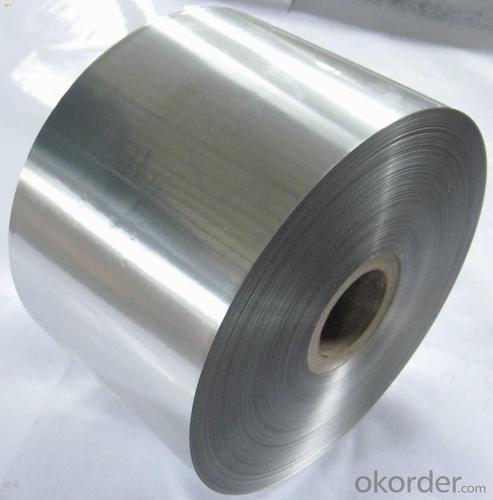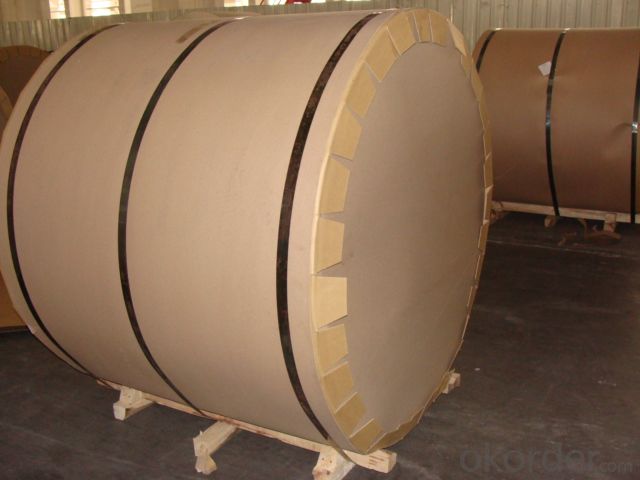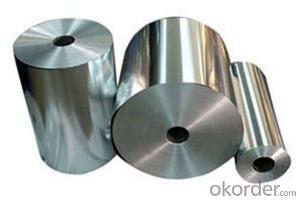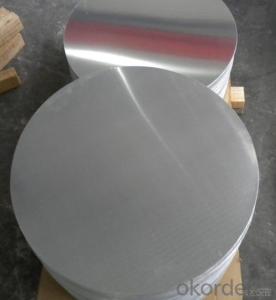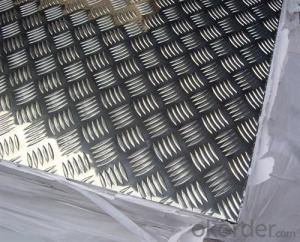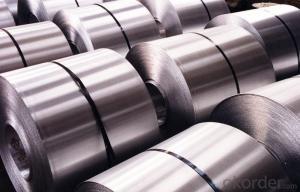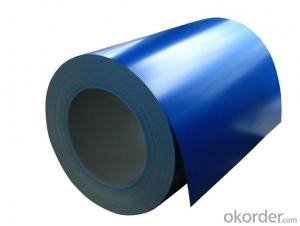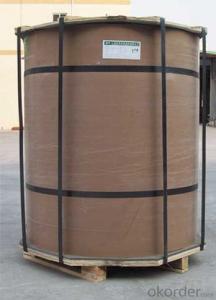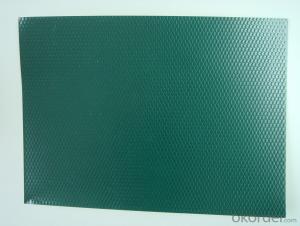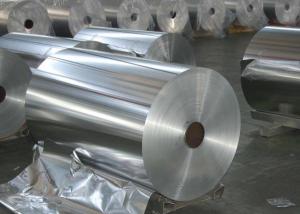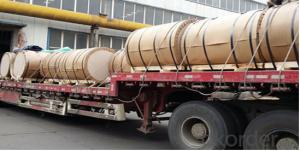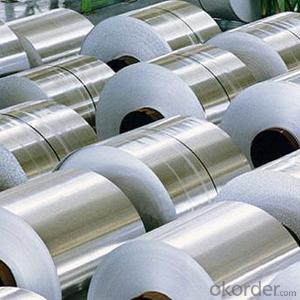Perforated AA3003 Aluminum Coil Stock for Construction
- Loading Port:
- Shanghai
- Payment Terms:
- TT OR LC
- Min Order Qty:
- 5 m.t.
- Supply Capability:
- 10000 m.t./month
OKorder Service Pledge
OKorder Financial Service
You Might Also Like
1.Structure of AA3003 Aluminum Coils used for Construction Description
AA3003 Aluminum Coils used for Construction has great ductility, heat conductivity, anti-corrosion and moisture resistance properties.
AA3003 Aluminum Coils used for Construction is widely used for PP cap stock, hot rolled thick plate, PS base plate, aluminum curtain wall base plate, the traffic sign ,air-conditioner heat and exchangers, food container, household foil, pharmaceutical packing, cigarettes packing.
2.Main Features of AA3003 Aluminum Coils used for Construction
• Superior quality of raw material
• Reasonable and stable chemical composition
• Accurate tolerance
• Goode mechanical property
3.AA3003 Aluminum Coils used for Construction Images
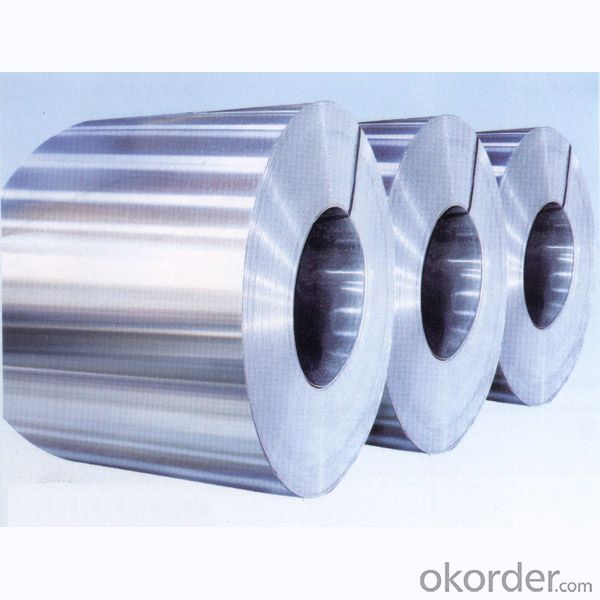
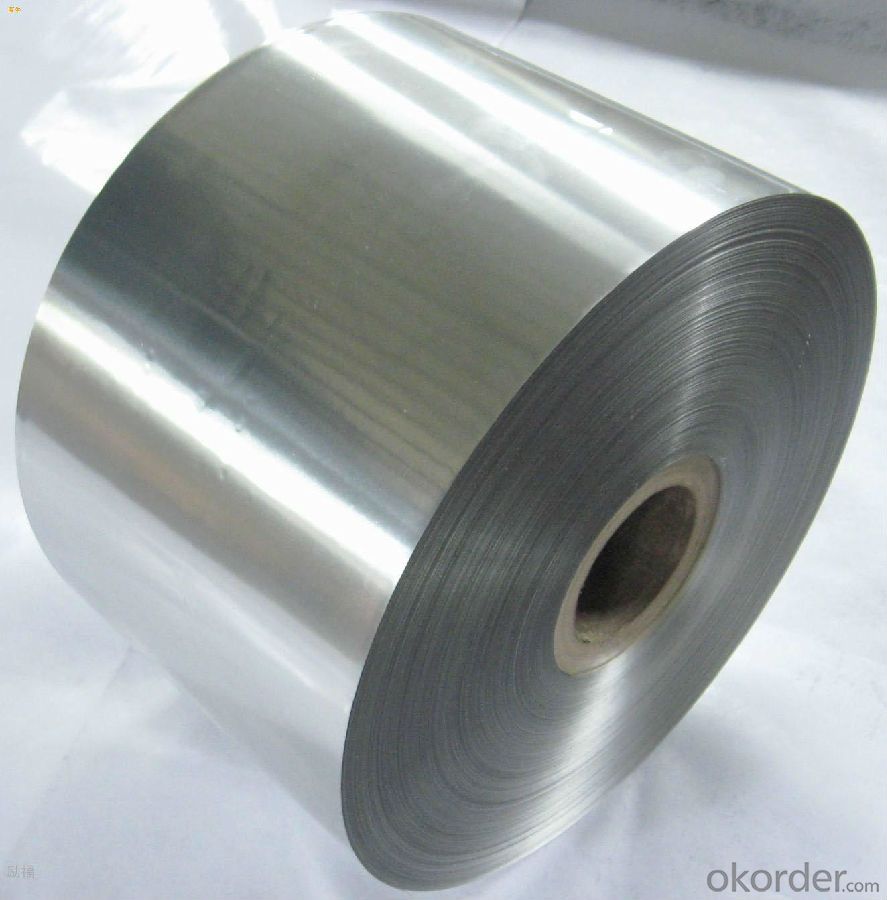
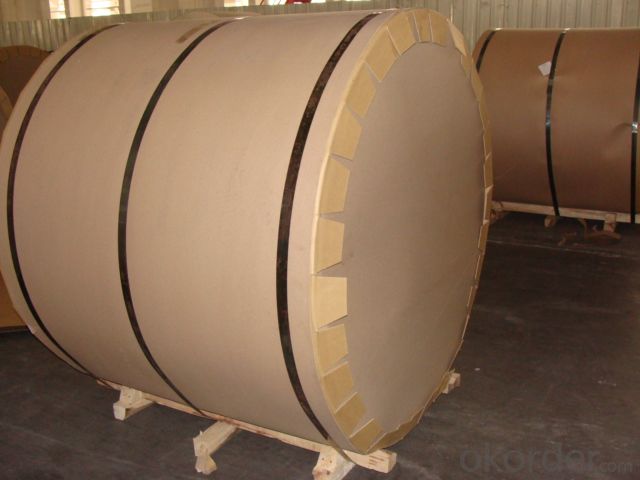
4.AA3003 Aluminum Coils used for Construction Specification
Alloy | A3003 |
Temper | H14, H16, H18, H22, H24, H26, H32, O/F |
Thickness | 0.2mm -- 100mm |
Width | 30mm -- 1700mm |
Standard | GB/T 3880-2006,EN |
5. FAQ of AA3003 Aluminum Coils used for Construction
A.How to guarantee the quality?
Customers are welcome to our mill to visit and check the products. Besides, we can arrange a third party to test AA3003 Aluminum Coils used for Construction.
B. Now which countries do you export your goods?
Now we export to South East Asia,Africa, North America,South America ect.
- Q: How are aluminum coils used in the production of sporting goods?
- Aluminum coils are used in the production of sporting goods primarily for their lightweight and durable properties. They are commonly used in the manufacturing of sports equipment such as baseball bats, tennis rackets, and bicycles. The coils are shaped, formed, and molded into the desired product, providing strength and flexibility while reducing overall weight. This allows athletes to have better control, enhanced performance, and reduced fatigue during sports activities.
- Q: I'm wondering if there is a resin/molding material that can withstand the heat of melted aluminum for casting parts. I know that sand casting is the 'norm' but is there anything else? I'd rather not have to pack sand every time I want to cast a part.Thanks!
- One common mold material for metal casting is plaster mixed with silica sand to give it more strength. It needs to be completely (like heated) dry before you use it, but it is actually more work than sand casting but it gives a better finish. There are some rubber materials which can withstand the heat of casting pewter, but the melting point of pewter is so much lower than aluminum that I am sure those won't work for aluminum. I think you are pretty much stuck with sand for the easiest method.
- Q: Aluminum reacts with water so why is it used in buildings and cooking??Some help by today would be good!! :DThanxx
- Aluminum reacts with water under certain conditions, but cookware does not usually present any of those conditions. Aluminum cookware takes advantage of the oxidizing process, which creates a natural protective layer over the aluminum. It doesn't react with water in the same way that chemical equations say it will because cooking surfaces are designed to maximize the oxidation effect. This is basically the same reason why aluminum foil doesn't react in water. In building materials, it's less about exposure to the elements and more about how cheap and lightweight it is. Many building materials are aluminum alloys, which makes them more susceptible to corrosion than purer aluminum, and the use of aluminium roofing material, though fairly corrosion-resistant by itself (for the same reasons as cookware), gets compromised by the proximity of other metals used in construction, like non-stainless steel nails and screws, for example, or copper pipes without insulation. The trade-off is that aluminium alloys hold their shape better and have greater tensile strength, some of which approach that of steel.
- Q: I planned on making heart shaped pancakes for Valentine's day - is it ok to use aluminum foil as the mold for it? If so, how should I go about it?
- It would make more sense to make a pancake and them cut them out with a heart shaped cookie cutter. I would not use foil on a burner...it will not turn out well. Good Luck
- Q: This question asks for the cost of an aluminum coil, which can vary based on factors such as weight, quality, and market conditions.
- <p>The cost of an aluminum coil can vary significantly based on its weight, grade, and current market prices. As of my last update, the price per pound can range from about $0.30 to $1.50, but this is subject to change with market fluctuations. For precise pricing, it's best to check with a supplier or on a commodity exchange, as aluminum prices are dynamic and influenced by global supply and demand.</p>
- Q: Why do we need aluminum when cooking in the oven at all.
- Foil keeps meat from drying out and hastens cooking time. Also keeps juices from spattering all over the inside of your oven. Plus, when you line a pan with foil, easier to clean pan, especially if you are baking something like cheesy scalloped potatoes.
- Q: This question asks for the various uses of aluminum coil within the construction industry.
- <p>Aluminum coil has several applications in construction due to its lightweight, durability, and resistance to corrosion. It is commonly used in roofing and siding materials for both residential and commercial buildings. Aluminum coil is also utilized in the manufacturing of window frames and doors due to its strength and ability to withstand harsh weather conditions. Furthermore, it is used in the production of heat exchangers and HVAC systems because of its thermal conductivity. Additionally, aluminum coil is employed in the construction of scaffolding and temporary structures due to its ease of handling and high strength-to-weight ratio. It also finds use in the fabrication of electrical conduits and cable trays because of its electrical conductivity and resistance to moisture.</p>
- Q: what is the final temperature of 250g of water whose initial Temperature is 25 C if 80-g of aluminum initially at 70 C is dropped into the water? The specific heat of aluminum is 0.215 cal/C g how do you do it? our teacher did not show us how and it is not in the book
- Given Data :-- Mass : Aluminium m(a) = 80 g, Water m(w) = 250 g Initial Temperature : Aluminium t? = 70 C and Water t?' = 25 C Final Temperature of both ( aluminium and water ) = T C (assume) Since Aluminium is initially at a temperature higher than that of water, it (aluminium) will lose heat to water . Heat lost by Al = Q = mass of Aluminium x sp.heat capacity of Aluminium x Temp. change = Q = 80 x 0.215 x ( 70 - T ) cal Heat gained by water = Q' = mass of water x sp.heat capacity of water x Temp. change = Q' = 250 x 1 x ( T - 25 ) According to principle of calorimetery . = Heat lost by aluminium = heat gained by water. = 250 x 1 x ( T - 25 ) = 80 x 0.215 x ( 70 - T ) = T = 27.9 C .... ( Rounded to one decimal place )...... Answer Answer .
- Q: Can aluminum coils be used for electrical applications?
- Aluminum coils can indeed be utilized for electrical purposes. The electrical industry extensively employs aluminum due to its superb conductivity, lightweight nature, and resistance to corrosion. Various electrical applications, such as transformers, motors, generators, and inductors and solenoids, commonly employ aluminum coils. These coils possess advantages like high thermal conductivity and minimal eddy current losses, which make them highly efficient in the transmission and distribution of electrical power. Moreover, aluminum coils are more cost-effective when compared to copper coils, making them the preferred choice for numerous electrical applications. Nevertheless, it is worth noting that aluminum possesses lower electrical conductivity than copper. Therefore, adjustments in the coil design and dimensions may be necessary to ensure optimal performance.
- Q: What are the potential fire hazards associated with aluminum coils?
- There are several potential fire hazards associated with aluminum coils. First and foremost, aluminum is a highly flammable material, which means it can catch fire easily and burn quickly. This poses a significant risk if there is an ignition source nearby, such as an open flame, electrical spark, or hot surface. Another potential fire hazard is the accumulation of dust, dirt, or other combustible materials on the aluminum coils. These substances can act as fuel for a fire, increasing the likelihood and intensity of combustion. It is important to regularly clean and maintain the coils to prevent the buildup of such materials. Aluminum coils are often used in HVAC systems, and if these coils are not properly installed or maintained, they can become a fire hazard. For instance, if the coils are not securely fastened or if there are loose electrical connections, it can lead to overheating and potentially cause a fire. Additionally, aluminum coils can cause electrical fires if they come into contact with live electrical wires or if there is a short circuit. This can happen if the coils are installed too close to electrical components or if there is a failure in the insulation or grounding of the system. Lastly, the use of flammable refrigerants in HVAC systems can also increase the fire risk associated with aluminum coils. If there is a leak or malfunction in the refrigerant system, it can create a flammable atmosphere around the coils, leading to a potential fire or explosion. To mitigate these fire hazards, it is crucial to follow proper installation guidelines, regularly inspect and maintain the coils, keep the surrounding area clean and free from combustible materials, and ensure that there are no electrical or refrigerant leaks in the system. It is also recommended to have fire detection and suppression systems in place to quickly respond to any potential fire emergencies.
Send your message to us
Perforated AA3003 Aluminum Coil Stock for Construction
- Loading Port:
- Shanghai
- Payment Terms:
- TT OR LC
- Min Order Qty:
- 5 m.t.
- Supply Capability:
- 10000 m.t./month
OKorder Service Pledge
OKorder Financial Service
Similar products
Hot products
Hot Searches
Related keywords



